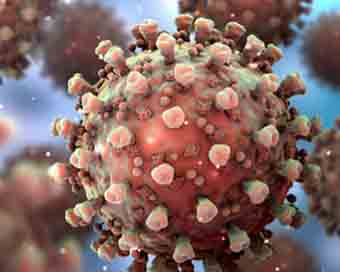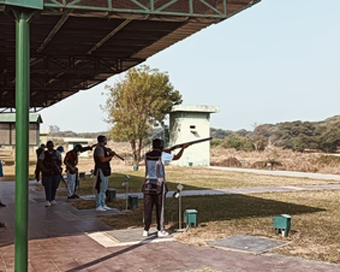Gallery
 PM Modi visit USA
PM Modi visit USA Only the mirror in my washroom and phone gallery see the crazy me : Sara Khan
Only the mirror in my washroom and phone gallery see the crazy me : Sara Khan Karnataka rain fury: Photos of flooded streets, uprooted trees
Karnataka rain fury: Photos of flooded streets, uprooted trees Cannes 2022: Deepika Padukone stuns at the French Riviera in Sabyasachi outfit
Cannes 2022: Deepika Padukone stuns at the French Riviera in Sabyasachi outfit Ranbir Kapoor And Alia Bhatt's Wedding Pics - Sealed With A Kiss
Ranbir Kapoor And Alia Bhatt's Wedding Pics - Sealed With A Kiss Oscars 2022: Every Academy Award Winner
Oscars 2022: Every Academy Award Winner Shane Warne (1969-2022): Australian cricket legend's life in pictures
Shane Warne (1969-2022): Australian cricket legend's life in pictures Photos: What Russia's invasion of Ukraine looks like on the ground
Photos: What Russia's invasion of Ukraine looks like on the ground Lata Mangeshkar (1929-2022): A pictorial tribute to the 'Nightingale of India'
Lata Mangeshkar (1929-2022): A pictorial tribute to the 'Nightingale of India' PM Modi unveils 216-feet tall Statue of Equality in Hyderabad (PHOTOS)
PM Modi unveils 216-feet tall Statue of Equality in Hyderabad (PHOTOS)India Open Competition in Shotgun, organised by the National Rifle Association of India (N
- Hockey India names Amir Ali-led 20-man team for Junior Asia Cup
- Harmanpreet Singh named FIH Player of the Year, PR Sreejesh gets best goalkeeper award
- World Boxing medallist Gaurav Bidhuri to flag off 'Delhi Against Drugs' movement on Nov 17
- U23 World Wrestling Championship: Chirag Chikkara wins gold as India end campaign with nine medals
- FIFA president Infantino confirms at least 9 African teams for the 2026 World Cup
Covid survivors still at reinfection risk from Alpha, Beta variants Last Updated : 20 Jun 2021 08:51:37 PM IST 
Immune response following a coronavirus infection can vary between individuals and may not be enough to fight Alpha, and Beta variant of Covid-19, finds a study reinforcing the need for vaccination.
The study found that people who produced a weak immune response signature, obtained at one and six months post infection, failed to show any neutralising antibodies against the Alpha variant, with none mounting a neutralising antibody response against the Beta variant.The preprint study was led by University of Oxford, in collaboration with the Universities of Liverpool, Sheffield, Newcastle and Birmingham, suggests that whether it is symptomatic or asymptomatic infection, it does not necessarily protect people long-term from Covid-19, particularly against new Variants of Concern."Our study is one of the most comprehensive accounts of the immune response following Covid-19 in both symptomatic and asymptomatic individuals. It is very important that we all get the Covid vaccine when offered even if you think you may have previously had Covid-19," said Christina Dold, from the University of Oxford."We found that individuals showed very different immune responses from each other following Covid-19, with some people from both the symptomatic and asymptomatic groups showing no evidence of immune memory six months after infection or even sooner," Dold added.The study examined how the immune system responds to Covid-19 in 78 healthcare workers who had experienced either symptomatic or asymptomatic disease. An additional eight patients who experienced severe disease were included for comparison.Blood samples were taken monthly from 1-6 months post infection to examine different elements of the immune response. The report details a highly complex and variable immune response following Covid-19 infection.The team found an early immune signature, detectable one month post infection and linked to both cellular and antibody immunity, which predicted the strength of immune response measured at six months post infection.This is the first time that such a signature has been found and improves understanding of the development of lasting immunity.While the majority of people who had symptomatic disease did have measurable immune responses at six months post infection, a significant minority (26 per cent) did not. The vast majority of people who experienced asymptomatic disease (92 per cent) did not exhibit a measurable immune response at six months post infection, the researchers said.IANS London For Latest Updates Please-
Join us on
Follow us on








172.31.16.186







